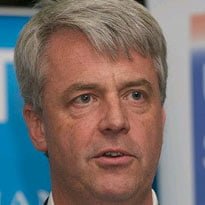Health secretary Andrew Lansley today promised to take steps to create an open market in health IT systems.
In a keynote speech at HC2011 in Birmingham, Lansley said that getting the Department of Health to award multi-billion pound contracts “didn’t work” and weighed heavily against innovation.
To replace this approach, he promised that a wide range of hospitals, GPs and other providers would be able to “choose from a whole range of hardware and software."
“We need to introduce big changes in the way we buy and use IT," Lansley told the event. “We want to create an open IT market for any technology provider who can contribute to delivering better care for patients.”
Lansley said he was immensely impressed by the amount of innovation already happening within the NHS. But he said the speed and spread of adoption needed to be accelerated.
Asked by eHealth Insider what steps he would take to open the NHS IT market, the health secretary said: “We have already identified key national applications…”
He added: “We are moving to ‘connect all’ and we will empower hospitals, GPs and a whole range of other providers to become customers and equip them with the resources to choose from a whole range of hardware and software.”
Lansley said that significant investment is still being made in the health service and health IT in particular, with NHS Connecting for Health still being funded.
But he said there would be no further, separate, national NHS IT investments, stressing that “digital” needs to be embedded in the mainstream of the health service.
Lansley also said that better technology was needed to underpin his Information Revolution, which aims to deliver more information to patients, based on the maxim of “no decision about me, without me”.
In part, Lansley said, this will require the provision of “superfast broadband” at speeds far in excess of today’s norms. “Why stop at 40Mb? What about 400Mb or even 1,00Mb?" he asked.
He predicted that if such superfast broadband were made available it would unleash a wave of innovation and entrepreneurship, both within and outside the health service, and create new models of service delivery. “To paraphrase Field of Dreams: build it and they will come.”

